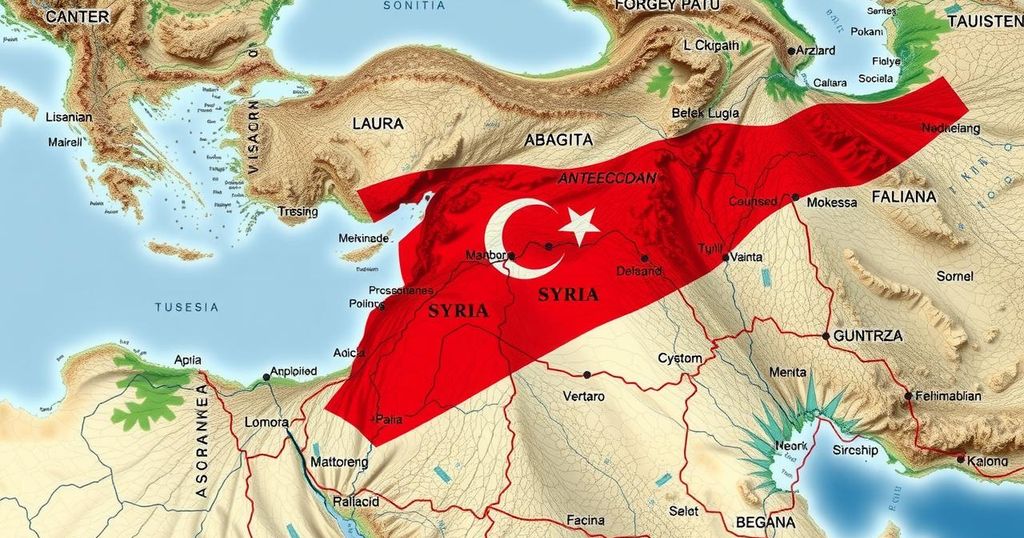Following the fall of Bashar Assad, Israel and Turkey are competing to influence Syria’s territory and governance. Israel expands its military presence to secure borders against Islamist factions. In contrast, Turkey focuses on countering Kurdish militias to establish a buffer zone. Both nations navigate regional security concerns while shaping their strategic interests in a post-Assad landscape.
Recent geopolitical developments have transformed Syria’s political landscape and territorial dynamics following the overthrow of President Bashar Assad. Israel has aggressively advanced into Syria’s buffer zone, established by a ceasefire agreement half a century ago, to deter Islamist groups from threatening its northern border. Prime Minister Benjamin Netanyahu articulated Israel’s concerns regarding the rise of extremist factions, emphasizing the necessity of a security presence until a stable Syrian government is established.
Simultaneously, Turkey is actively seeking to influence the situation in Syria by countering Kurdish militias associated with the PKK, with President Recep Tayyip Erdogan intent on establishing a buffer zone along the lengthy Turkey-Syria border. The Syrian National Army, supported by Ankara, has recently made territorial gains against Kurdish forces, and officials indicated a likelihood of further advances.
Israel’s encroachment in the Golan Heights has allowed it to extend military oversight and resource control over a strategically significant area. The Golan Heights, which Israel captured during the Six-Day War in 1967, remains internationally recognized as Syrian territory, although a significant portion is currently administered by Israel. Local Druze leaders, such as Dolan Abu Salah, have expressed limited support for Israel’s movements, perceiving them as essential for community security.
In Turkey, foreign minister Hakan Fidan acknowledged the complexity of Syrian dynamics while suggesting that Ankara seeks to collaborate with Syria’s new leadership and terrorist factions that have distanced themselves from more extreme affiliations. Turkey’s motivations are twofold: managing a large refugee population and positioning itself as a key player in post-war reconstruction efforts.
In summary, Israel and Turkey are not only reacting to the power vacuum left by Assad’s exit but are also shaping the future political and territorial framework of Syria amid a backdrop of regional aspirations and security concerns.
The article examines how Israel and Turkey are each maneuvering to establish control and influence over Syria in light of recent unrest and the fall of President Bashar Assad. The political shifts have paved the way for both nations to assert their interests through territorial expansions, military engagements, and diplomatic maneuvering. The context includes domestic threats posed by extremist groups and cross-border ethnic tensions, particularly concerning Kurdish populations. This backdrop highlights the stakes for regional powers in the wake of ongoing conflict and instability.
The recent events surrounding the ousting of Bashar Assad have prompted both Israel and Turkey to enhance their military and territorial strategies in Syria. As Israel seeks to fortify its borders against potential jihadi threats, Turkey aims to consolidate its influence while simultaneously addressing its internal concerns regarding the Kurdish population. Both nations illustrate the ongoing struggle for control and security in a region marked by conflict and uncertainty, suggesting a complex and evolving geopolitical landscape in Syria’s future.
Original Source: www.jpost.com






